1 citations,
November 2022 in “International journal of molecular sciences” Human fetal placental stromal cell injections speed up healing and improve skin and hair recovery after radiation damage.
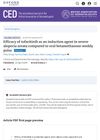 April 2024 in “Clinical and experimental dermatology”
April 2024 in “Clinical and experimental dermatology” Tofacitinib is effective for severe alopecia areata, similar to oral betamethasone.
 2 citations,
November 1998 in “Journal of The European Academy of Dermatology and Venereology”
2 citations,
November 1998 in “Journal of The European Academy of Dermatology and Venereology” A patient with a severe type of hair loss experienced partial hair regrowth after treatment with a specific light therapy and a medication called interferon α2a.
[object Object]  139 citations,
December 2020 in “Cell Stem Cell”
139 citations,
December 2020 in “Cell Stem Cell” Male hormones affect COVID-19 severity and certain drugs targeting these hormones could help reduce the risk.
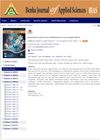 December 2020 in “Benha Journal of Applied Sciences”
December 2020 in “Benha Journal of Applied Sciences” People with severe acne tend to have higher levels of betatrophin.

The document concludes that severe trauma can cause temporary hair loss, known as Telogen Effluvium, which usually resolves without treatment.
39 citations,
April 2009 in “Journal of Plastic Reconstructive & Aesthetic Surgery” The surgery for severe congenital ptosis in children is safe and effective, with good long-term results.
 April 2023 in “International Journal of Community Medicine and Public Health”
April 2023 in “International Journal of Community Medicine and Public Health” Older people with severe COVID-19, especially those with certain health conditions, are more likely to experience post-COVID syndrome.
 1 citations,
September 2023 in “Journal of the American Academy of Dermatology”
1 citations,
September 2023 in “Journal of the American Academy of Dermatology” Baricitinib significantly improves hair regrowth in severe alopecia areata.
[object Object] 19 citations,
January 2013 in “Annals of Dermatology” Early high-dose steroid treatment helps prolong disease-free periods in severe alopecia areata.
 7 citations,
January 2019 in “Postepy Dermatologii I Alergologii”
7 citations,
January 2019 in “Postepy Dermatologii I Alergologii” Certain gene variations might be linked to severe acne in women but not in men.
 February 2024 in “Journal of cutaneous and aesthetic surgery”
February 2024 in “Journal of cutaneous and aesthetic surgery” The combined treatment helps improve severe hair loss and reduces the need for other medications.
129 citations,
July 2019 in “Stem Cell Research & Therapy” Epidermal stem cells help heal severe skin wounds and have potential for medical treatments.
 January 2024 in “Indian Journal of Plastic Surgery/Indian journal of plastic surgery”
January 2024 in “Indian Journal of Plastic Surgery/Indian journal of plastic surgery” The flap advancement technique effectively treats severe scalp skin conditions, preserving hair and improving appearance.
7 citations,
January 2022 in “SAGE open medical case reports” Upadacitinib successfully treated a child's severe skin and hair loss issues.
 April 2023 in “Revista colombiana de reumatología”
April 2023 in “Revista colombiana de reumatología” JAK inhibitors like tofacitinib can effectively treat severe alopecia areata.
September 2014 in “Archives of disease in childhood” A 12-year-old boy had severe shingles and skin damage after a stem-cell transplant.
 5 citations,
October 2015 in “The American journal of pathology”
5 citations,
October 2015 in “The American journal of pathology” Mice with a mutated Dsg3 gene showed severe symptoms but not the typical blistering of pemphigus vulgaris.
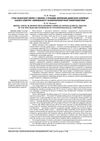 March 2024 in “Ukraïnsʹkij vìsnik psihonevrologìï”
March 2024 in “Ukraïnsʹkij vìsnik psihonevrologìï” Women with mixed alopecia have more severe mental health issues than those with metabolic alopecia.
 2 citations,
December 2018 in “Journal of cosmetic dermatology”
2 citations,
December 2018 in “Journal of cosmetic dermatology” Higher CRBP1 levels are linked to more severe alopecia areata.
3 citations,
March 2019 in “European Journal of Dermatology” A specific gene mutation (Y449H in K10) was found in a patient with severe skin disorder.
 January 2025 in “Frontiers in Pediatrics”
January 2025 in “Frontiers in Pediatrics” Baricitinib significantly improved hair regrowth and skin condition in a 14-year-old with alopecia areata and atopic dermatitis.
15 citations,
January 1992 in “Dermatology” Artificial hair implants can cause severe skin problems, often needing surgical removal.
 January 2025 in “SKIN The Journal of Cutaneous Medicine”
January 2025 in “SKIN The Journal of Cutaneous Medicine” Baricitinib significantly regrows hair in severe alopecia areata patients.
 9 citations,
January 2023 in “Dermatology and therapy”
9 citations,
January 2023 in “Dermatology and therapy” A 14-year-old girl with severe hair loss regrew her hair using upadacitinib.
 2 citations,
September 2021 in “JAAD case reports”
2 citations,
September 2021 in “JAAD case reports” Dupilumab helped a woman with severe hair loss regrow her hair quickly and maintain it for six months after stopping treatment.
 42 citations,
November 2018 in “Archives of dermatological research”
42 citations,
November 2018 in “Archives of dermatological research” Apremilast was not effective in treating moderate-to-severe alopecia areata.
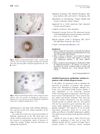 30 citations,
August 2009 in “Journal of the American Academy of Dermatology”
30 citations,
August 2009 in “Journal of the American Academy of Dermatology” Bimatoprost is safe but not effective for severe eyelash loss from alopecia areata, possibly helping those with less loss.
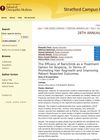
Baricitinib effectively promotes hair regrowth in severe alopecia with minimal side effects.
 2 citations,
February 2014 in “Journal of Crohn's and colitis”
2 citations,
February 2014 in “Journal of Crohn's and colitis” Some IBD patients on anti-TNFs developed severe skin issues, but ustekinumab helped.





















